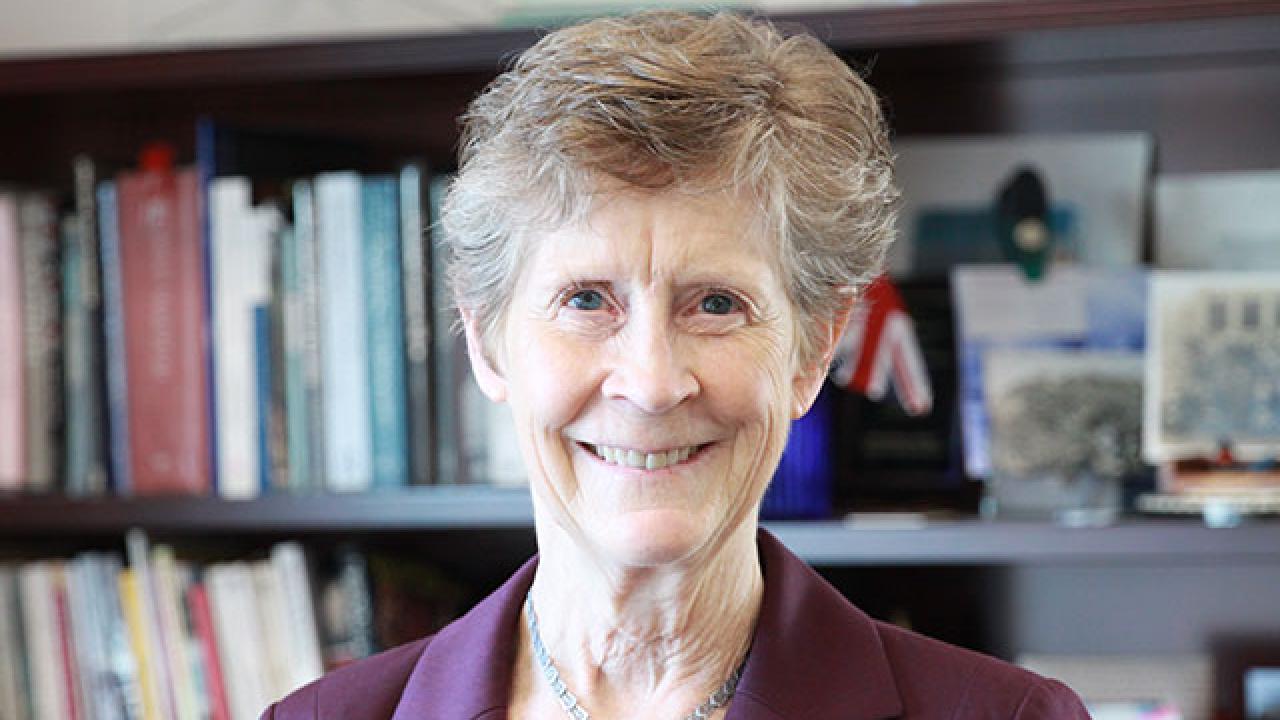
Susan Carlson
How do you define faculty leadership?
Faculty enter leadership with analytical skills shaped in their disciplines and an approach to excellence developed through peer review and classroom engagement. They bring decades of service to the research and teaching missions of the university. The values and principles they develop as professors, working in their disciplines and departments, are the basis for unique approaches to leadership.
Can you share an example of when you've been able to influence positive change as an academic leader?
A good example is leading high-level talent searches. With the right, inclusive process, you will have the best outcome. The search needs to build on what the academic community—and all stakeholders--needs at that moment in time. The search committee needs to represent the full community of stakeholders and to bring the values of the community to the endeavor. Such a process takes substantial time and energy. I feel particularly rewarded when I shepherd a process that leads to the appointment of the right leader at the right time.
How could the University benefit from preparing more faculty for future leadership positions?
We need diverse faculty from a wide range of disciplines who bring a breadth of knowledge and approaches to leadership if we want to continue to be innovative and creative. In particular, the experiences those faculty members have with their peers and with their students creates the values that we need in our administrative decision-making.
Tell us about your experience with leadership development programs, or if you have not participated in any, what you would hope to gain from doing so.
Two things stand out in my experience with leadership programs.
First, the best part is always the community that develops. The mutual learning and exchange of ideas among peers is invaluable. I have drawn upon those networks well beyond the formal end of the development program.
What also stands out to me is that, for a faculty member, it is common to think you don’t need this kind of leadership training. It is easy to think that as you move from assistant to associate to full professor you have already gained the requisite skills and that everything will just fall into place for you as a leader. So it takes some humility to understand that there are certain skills you might not have, and a recognition that those skills can be learned.
How does strong leadership from Faculty impact the University of California?
One of the reasons I am so interested in academic leadership is that it is more difficult than it used to be. There is a lot more we require from academic leaders now than in the past, at the same time there are fewer resources to support administration, especially at the department level. In California we have a wonderfully diverse student body and an increasingly diverse faculty. It takes a particular set of skills and understanding to be sure that we are creating the right climate for all of our students and faculty.
We need more diverse leadership. We need to convince women and underrepresented minorities who may not feel they are in the mainstream of their departments to understand they can add great value as leaders.
What would you say to Faculty hard pressed to find time to participate in leadership workshops or other programming?
I hope we can convince faculty that leadership is just as important as their research, their work with students, and their mentoring of future leaders in the Academy. Most people who try academic leadership end up liking it. They find it compelling and rewarding. We need to get people over the misconception that it is a distraction and to see it, instead, as a way to shape the future of their discipline and the Academy.
